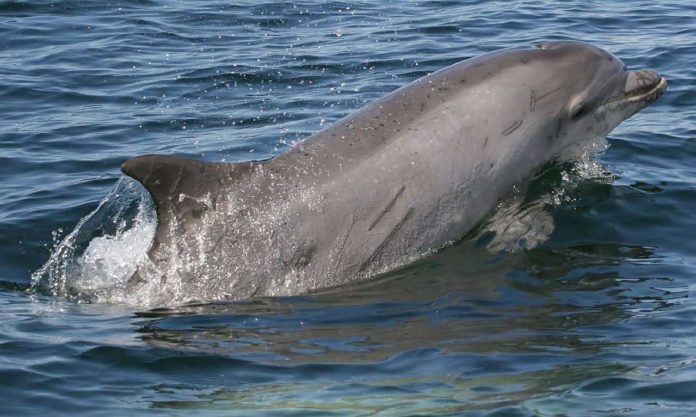Homophilous behavior plays a central role in the formation of human friendships. Individuals form social ties with others that show similar phenotypic traits, independently of relatedness. Evidence of such homophily can be found in bottlenose dolphins.
When it comes to making friends, dolphins form a close friendship with other dolphins who have a common interest. This learned technique passed down from generation to generation, helps certain dolphins, “spongers”, find food in deeper water channels. While the tool-using technique is well-studied in female dolphins, this study looked specifically at male dolphins.
For this study, scientists used behavioral, genetic and photographic data collected from 124 male dolphins during the winter months in Shark Bay over nine years [2007 to 2015]. Scientists then analyzed a subset of 37 male dolphins, comprising 13 spongers and 24 non-spongers.
What scientists found is that male spongers more likely to spend time with their male spongers than they do non-spongers. These bonds were based on similar foraging techniques and not relatedness or other factors.
Dr Simon Allen, a co-author of the study and senior research associate at Bristol’s School of Biological Sciences, explained “Foraging with a sponge is a time-consuming and largely solitary activity so it was long thought incompatible with the needs of male dolphins in Shark Bay – to invest time in forming close alliances with other males. This study suggests that, like their female counterparts and indeed like humans, male dolphins form social bonds based on shared interests.”
Manuela Bizzozzero, a lead author of the study at the University of Zurich, added: “Male dolphins in Shark Bay exhibit a fascinating social system of nested alliance formation. These strong bonds between males can last for decades and are critical to each male’s mating success. We were very excited to discover alliances of spongers, dolphins forming close friendships with others with similar traits.”
Scientists noted that the study highlights homophilous behavior in the social network of tool-using dolphins.
The study was funded by grants from the Swiss National Science Foundation, National Geographic Society, Australia’s Sea World Research and Rescue Foundation Inc (SWRRFI), W.V. Scott Foundation and the A.H. Schultz Stiftung.
